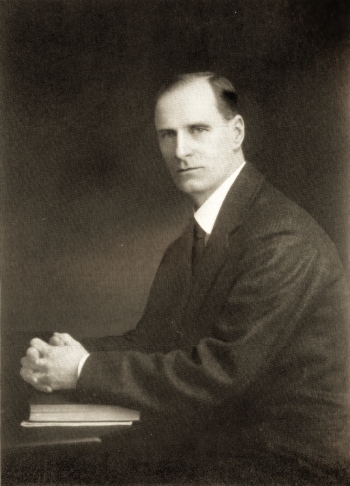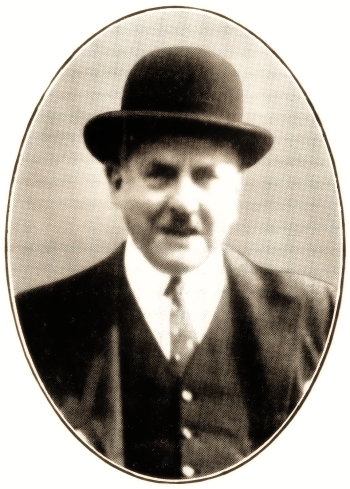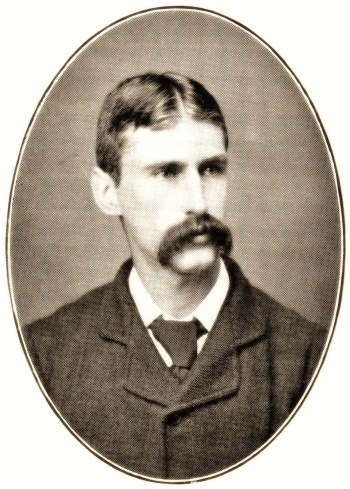In Memoriam
William Arthur Wright
The news of the sudden death of W. A. Wright on July 27th, 1931, at Pontresina while on his summer holiday, came as a great shock to his many friends. He was 63 years of age and unmarried.
The eldest son of the late Alderman Samuel Wright of York, he was chairman and a governing director of Messrs. Leak and Thorp, Limited, York. A man of singular integrity and uprightness of character, he will always be remembered with affection and esteem by his business competitors.
For reasons of health he had resided for upwards of 20 years at Harrogate, and being of a somewhat retiring disposition, had not associated himself with the civic activities of his native city, but he possessed the unusual distinction of being a member of two of the ancient York Guilds, the Merchant Taylors Company and the Merchant Adventurers Company, and was a past president of the York Chamber of Trade.
An earnest supporter of all charitable objects, he was a generous contributor to the funds of the York County Hospital, in which he had endowed a bed, and was a member of its House Committee, also a generous supporter of the Clifton Home for Girls, a governor of the York Charity Schools, and of the Bootham Park Mental Hospital.
He was also keenly interested in music, and was a consistent supporter of the Leeds Triennial Musical Festivals, and of the York Musical Society.
An active Wesleyan Methodist, he was a generous benefactor in this connection, especially to Trinity Wesleyan Church at Harrogate, in which he had held practically every office open to a layman. He had also subscribed liberally to various funds for York Minster.
As a mountaineer, he was a careful and conscientious climber, and his enthusiasm and sound technique enabled him to withstand the fatigue of long days on the hills. His visits to the Alps year after year proved him to be a true believer, and full of love for the mountains. His last article, on Lake Como, sufficiently indicates his interest in travel, art, and books.
It is singularly fitting therefore, that Wright was laid to rest at Pontresina ‘neath the shadows of the mountains he loved so well.
He was elected a member of the Alpine Club in 1925, and the secretary has been good enough to furnish a copy of his qualification sheet, which shows that he visited nearly every Alpine centre, and that most of the major peaks had been climbed by him. Dating from 1903 to 1925 it is a most comprehensive list of peaks and passes.
He first joined our own Club in 1901, resigned for three years, and rejoining in 1912, was Senior Vice-President in 1931, an honour of which he was deeply appreciative. He was probably not too well known by the bulk of the members, as his many activities did not permit him to join our week-end meets and Sunday walks, but those who got to know him well, found a charming personality, and a firm and loyal friend. G.A.P.-K.
Robert Kidson Swales
We regret to record the death of Robert Kidson Swales, who had been a member of the club for many years.
Although he never took part in the Club’s more strenuous activities, he was very keenly interested in its objects, and attended many meets at Almscliff, Ingleborough and elsewhere. As a young man he was very fond of country rambles, and was also keen on all ball games. In his early days he played cricket with the old Moorland Club, which now seems to belong to a far distant time, so long ago is it since we heard its name. Later he took up golf and tennis, and in both games he was a very sound player.
But Robert Swales had a wider sphere than that of games and athletics—good and kindly though such spheres may be. He seemed to be known everywhere and to know something about everybody. We have smiled sometimes at his knowledge of people, but it was a kindly and sympathetic nature that caused him to take an interest in anybody, and this brought him a wide circle of friends. To spend an evening with him was a delight: his ready wit and gay humour gave his friends many happy hours. But he had a serious side to his character and his devoted work for Wrangthorn Church, and the valuable service he rendered to the Leeds Tradesmen’s Benevolent Institution, bear witness to this.
His most conspicuous quality, however, was his courage : he suffered a long and painful illness. This he bore with a courage and fortitude that was remarkable. He never complained : even in his suffering he tried to be helpful to those surrounding him and he kept up his gay humour to the end.
He was buried on July 11th, 1931, and those who attended the service at Wrangthorn Church will no doubt remember it for many years to come. It was impressive and inspiring. A congregation which crowded the church to the door sang the old hymns, ” Fight the good fight,” and ” Onward Christian Soldiers.” There were no signs of mourning, by request, and there did not seem to be anything to mourn about. A good man had lived well and died bravely.—G.P.
Frank Ellet
By the death of Frank Ellet, on the 20th January, 1932, at the age of eighty, the Club loses yet another of the older members and the remaining old members suffer the loss of a valued friend whose charm, modesty and personality will never be forgotten. To the younger men he is probably only known by name as although, right up to the end, he took a keen interest in the activities of the Club, he has been physically incapable of taking part in any of its expeditions for many years.
Several of his younger years were spent in Australia, roughing it, and immediately after his return to England he developed a liking for and spent all his available time in rambling over and exploring the wildest moorlands of our northern playgrounds. He climbed with many of the great men of the early nineties, Cecil Slingsby, G. Hastings, Collie, 0. G. Jones and others whose names are historic, in the days when modesty demanded that if you took an ice-axe to the Lake District, at Christmas or Easter, it should be carefully concealed in brown paper.
Ellet soon became not only interested, but an enthusiast, in the kindred sport below ground and many of his companions will remember that he never shirked nor grumbled at any task, however laborious. In an early exploration of Gaping Ghyll, he dragged 400 feet of heavy rope for an hour, alone and without a halt, through narrow, low and tortuous passages, at that time a maze of stalactites. He added cheerfulness and practical knowledge to any camp, even under the worst conditions.
The writer will ever remember several long week-ends spent with him on the sides of Ingleborough, when, laden with as much tackle as we could carry, pot-holes were descended as they were met with ; unfortunately, in those days, the pure joy of the job was the only thing that mattered and so no records were kept of the actual locality of these explorations, unless indeed they were of such magnitude that the undertaking required a larger party. He was one of those who explored practically every explorable inch of Clapham Cave beyond the Giant’s Hall, a most trying expedition for him with severe varicose veins in both his legs and feet.
While he never had an opportunity of climbing outside the British Isles, he had a good acquaintance with Alpine work, a considerable knowledge of Lakeland climbs and, for a time, was a regular weekly attendant at Almscliff Crag, soon after that practice rockery was discovered.
Elected in 1896, Ellet remained a member until his end and we all shall mourn our loss.—E.C.
Claude E. Benson.
The article which appears in this number is the last with which Claude Benson will delight us. He died in Easter week, 1932. A memoir will appear in the next number.


